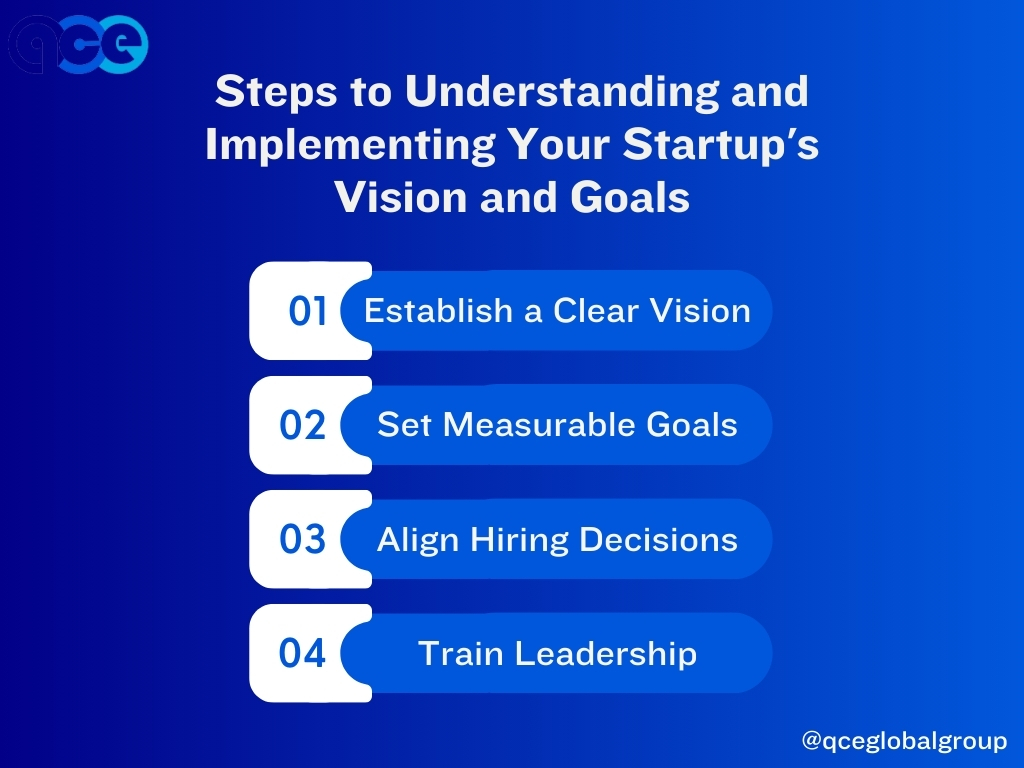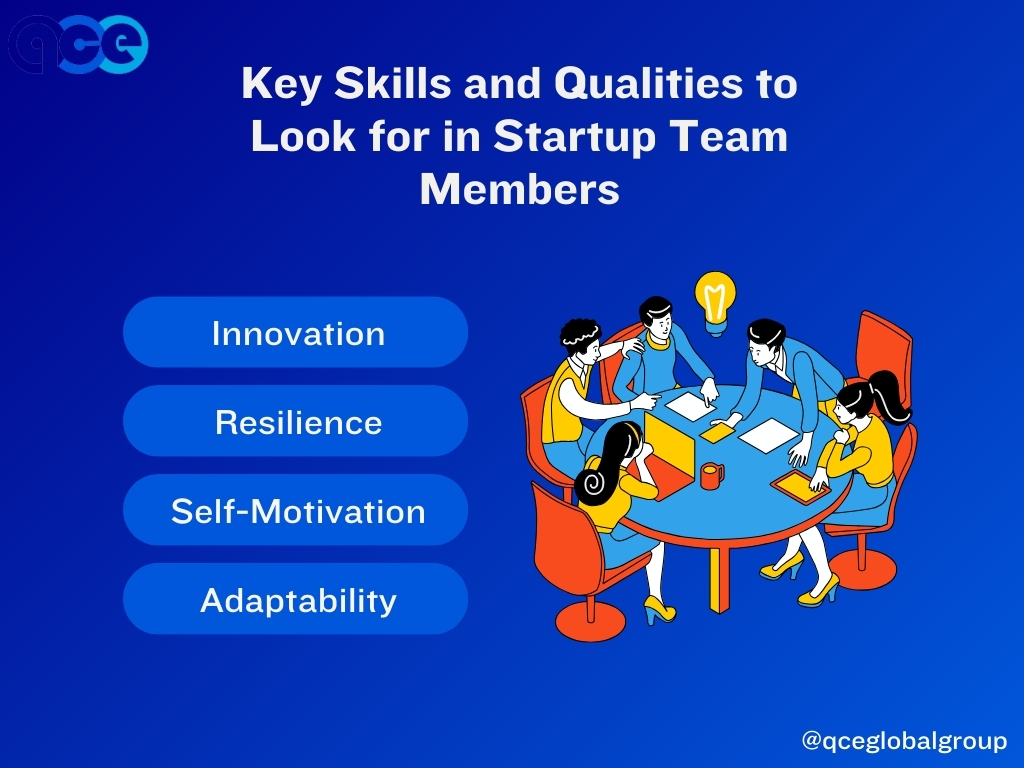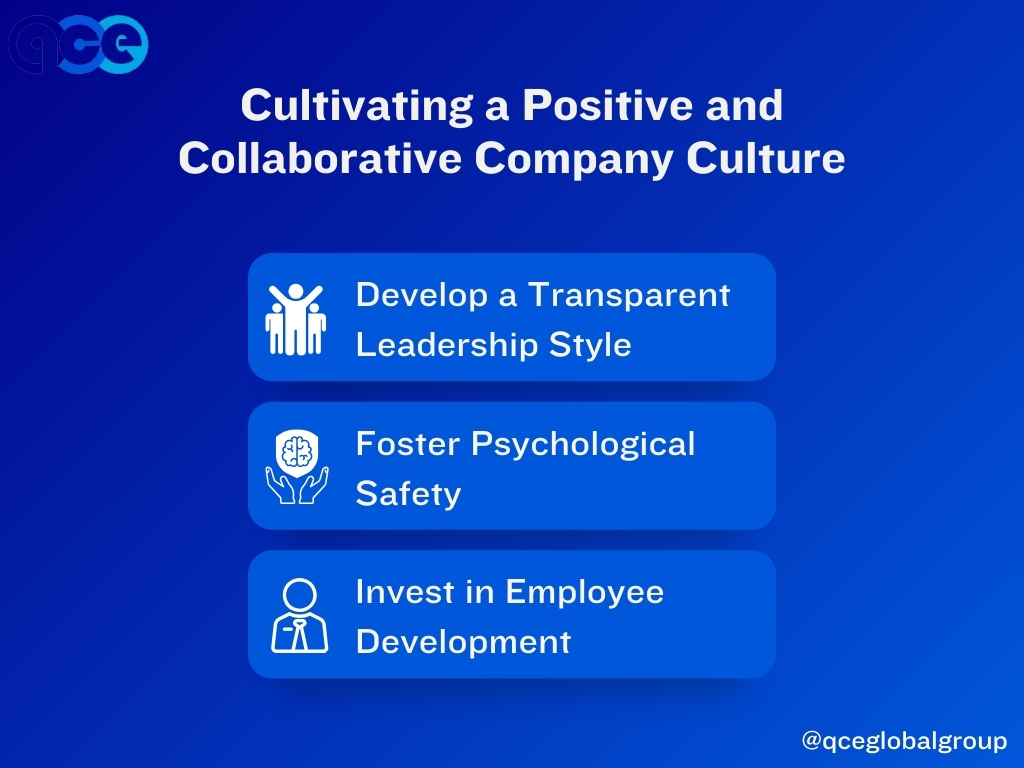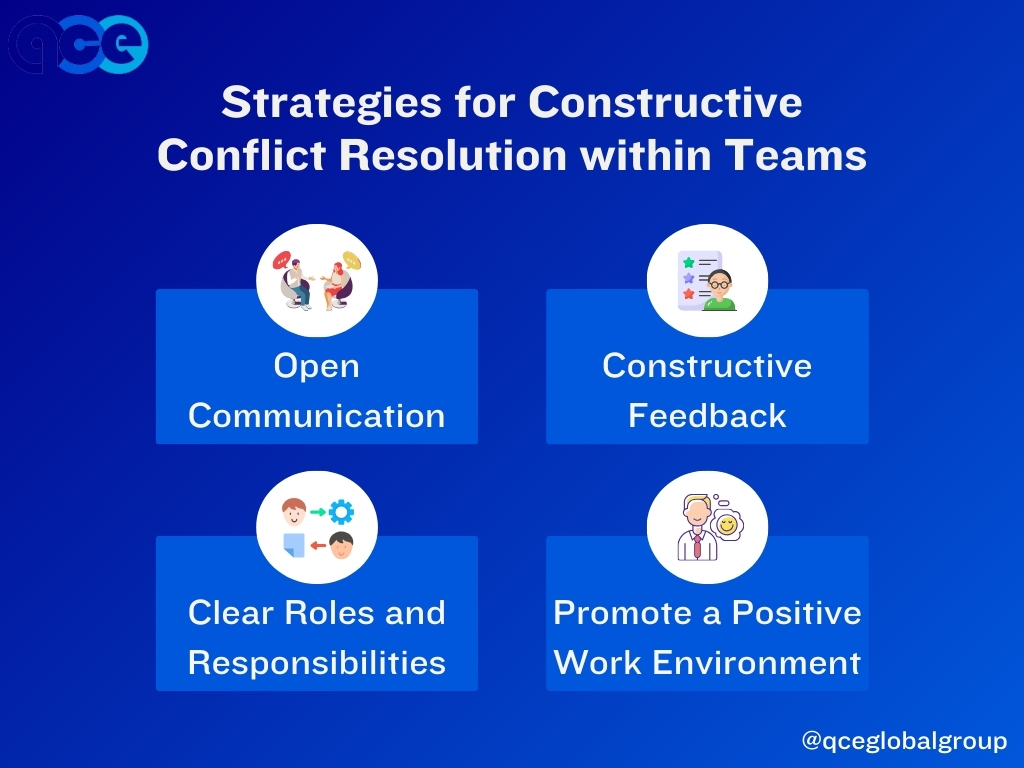Are you ready to build a winning team for your startup?
Our expert services can guide you through every step of the process – from defining roles and identifying key skills, to evaluating potential candidates and cultivating a positive company culture.
The success of a startup heavily depends on the team driving it. A clear vision and defined goals are crucial in making hiring decisions and identifying key roles within the organization. When selecting team members, it’s important to look beyond qualifications and consider skills and qualities that align with the startup’s culture and values. Effective evaluation methods, such as structured interviews and psychometric tests, can help identify potential candidates.
Cultivating a positive and collaborative company culture and retaining top talent are also essential. This involves offering competitive compensation packages, opportunities for professional growth, and fostering constructive conflict resolution. Investing in continuous training and development opportunities is also beneficial. Ultimately, building a successful startup requires dedication, perseverance, and resilience from the entire team.
Table of Contents
- Introduction: The Importance of Choosing the Right Team
- Understanding Your Startup’s Vision and Goals
- Identifying Key Roles Needed in Your Startup
- Defining Skills and Qualities to Look for in Team Members
- The Art of Evaluating Potential Candidates
- Cultivating a Positive and Collaborative Company Culture
- Strategies for Retaining Top Talent in Your Startup
- Navigating Challenges: Constructive Conflict Resolution within Teams
- Continuous Growth: Training and Development Opportunities for your Team
- Final Thoughts: How the Right Team Contributes to Startup Success
Introduction: The Importance of Choosing the Right Team
The success or failure of a startup largely depends on the team that drives it. As experts have noted, “When a startup succeeds, it’s because the founders made good decisions. When it fails, it’s because they made bad decisions” (Paul Graham). This underscores how critical your team selection process is to your venture’s success. A study by CB Insights found that 23% of startups fail due to not having the right team. While ideas and products are important, without a competent and dedicated team driving them forward, even great ideas will flounder. In contrast, an excellent team can turn an average idea into something extraordinary.
The right people bring diverse perspectives and experiences which can foster innovation and creativity within your startup. They also contribute their unique skills and talents which are essential in problem-solving and meeting business objectives. Furthermore, building a strong core team helps in creating a solid foundation for your business operations – from product development to customer service – hence enhancing productivity and efficiency.
Understanding Your Startup’s Vision and Goals

Creating a clear vision statement is key to guiding all aspects of your business strategy – including hiring decisions. It provides direction for where you want your company to go in the future. Your vision should be inspiring enough to rally people behind it but also realistic so as not to cause disillusionment when difficult times hit or progress seems slow. On top of having a clear vision, you need defined goals that break down this vision into achievable steps. These goals act as guideposts directing everyone’s efforts towards achieving overarching objectives. Once you have documented these two things – mission statements alongside measurable goals – then every hiring decision should align with them both implicitly and explicitly.
Here are the 10 Steps to Understanding and Implementing Your Startup’s Vision and Goals:
- Establish a Clear Vision: Clearly articulate what your company hopes to achieve in the long-term. This vision should be both inspiring yet realistic, guiding your business strategy including hiring decisions.
- Set Measurable Goals: Break down your vision into actionable steps. These goals should be specific, measurable, achievable, relevant, and time-bound (SMART) to guide your team’s efforts effectively.
- Align Hiring Decisions: Ensure every hiring decision aligns with your vision and goals. Hire individuals who not only possess the skills necessary but also resonate with your company’s vision.
- Develop a Mission Statement: Create a concise mission statement that encapsulates your company’s purpose and direction. This should align with your vision and goals.
- Communicate Your Vision and Goals: Make sure every team member understands and is committed to your vision and goals. Regularly communicate and reinforce these principles.
- Review and Adjust: Regularly review your vision and goals. Adjust them as necessary to account for changes in the business environment or company growth.
- Foster a Culture of Alignment: Cultivate a company culture that values alignment with the company’s vision and goals. This includes rewarding behaviors that contribute to these objectives.
- Incorporate Vision and Goals into Decision Making: Use your vision and goals as guiding principles in decision making. This ensures that all decisions support your overarching objectives.
- Train Leadership: Train your leadership team to understand and embody the company vision and goals. They should be the primary drivers in promoting these objectives.
- Use Goals to Track Progress: Use your defined goals to track progress towards your vision. This helps to maintain focus and motivation, and provides a clear indicator of success.
Identifying Key Roles Needed in Your Startup
Knowing what roles are needed within your organization plays an integral part in assembling an effective team for startups. Each role has to add value and contribute towards the achievement of your company’s goals. Key roles generally include a CEO who will lead the team, provide strategic direction, and make critical decisions. You also need technical specialists such as software developers if you are in the tech industry or food scientists if you’re launching a food startup.
Other essential roles include marketing and sales personnel to drive customer acquisition, financial experts for budgeting and cash flow management, HR personnel for staff welfare management among others. However, keep in mind that at the early stages of a startup, resources might be limited hence not all these roles might be filled immediately. Prioritize based on what is most urgent or crucial at each stage of the growth journey.
- Chief Executive Officer (CEO): This role is vital in setting the strategic direction, making critical decisions, and leading the team. The CEO is responsible for overseeing every aspect of the startup and ensures that all parts are working together towards the company’s goals.
- Technical Specialist: Depending on your industry, you may need software developers, food scientists, chemical engineers, or other technical experts. These individuals are responsible for developing, testing, and improving your product or service.
- Marketing and Sales Director: This role drives customer acquisition and retention by developing and implementing marketing and sales strategies. They also analyze market trends and competitors to ensure the startup remains competitive.
- Financial Manager: This role is responsible for budgeting, financial planning, and cash flow management. They ensure the startup remains financially healthy and can support its growth plans.
- Human Resources Manager: This role is responsible for managing staff welfare, developing HR policies, and recruiting and retaining talent. They play a critical role in building a strong team culture.
- Operations Manager: This role ensures smooth daily operations. They may manage procurement, inventory, logistics, or other operational areas, depending on the startup’s needs.
- Customer Service Manager: This role manages customer relations, resolves customer problems, and ensures a high level of customer satisfaction. They may also gather customer feedback to help improve the product or service.
- Product Manager: This role oversees the development and management of the product or service, ensuring it meets customer needs and aligns with the company’s strategic goals.
- Business Development Manager: This role identifies and pursues growth opportunities, such as partnerships, mergers, or acquisitions. They also work to improve the startup’s market position and achieve financial growth.
- Legal Advisor: This role provides legal advice to prevent potential legal risks. They may handle contracts, agreements, intellectual property rights, or other legal matters.
Defining Skills and Qualities to Look for in Team Members

Choosing the right people goes beyond their qualifications on paper; it’s about finding individuals who possess specific skills and qualities that align with the culture and values of startups. Firstly, you need team players. Startups are often characterized by flat hierarchies and fluid job descriptions which means employees must be flexible enough to work outside of their strict job description when needed. Secondly, look for people with a growth mindset – those who view challenges as opportunities rather than insurmountable obstacles and can learn and grow from failure instead of being defeated by it. Thirdly, consider emotional intelligence – the ability to understand and manage one’s own emotions as well as those around them – this has been proven to significantly improve teamwork and productivity because it enables effective communication and empathy among team members.
Here are the 10 Key Skills and Qualities to Look for in Startup Team Members:
- Innovation: Startups thrive on fresh and innovative ideas. Therefore, you should look for individuals who can think outside the box and bring new solutions and perspectives to the table.
- Resilience: The startup environment is often unpredictable and stressful. Therefore, resilience – the ability to recover quickly from difficulties – is a crucial trait for team members to possess.
- Self-Motivation: Employees should have the initiative and drive to complete tasks on their own and make significant contributions without constant supervision.
- Adaptability: With the constantly changing landscape of startups, having team members who can adapt to new strategies, technologies, and ideas is essential.
- Problem-Solving Skills: Startups often face a myriad of challenges and problems. Having team members with excellent problem-solving skills will help in navigating these hurdles.
- Leadership Potential: Even if the position is not a leadership role, having the potential to lead is an important quality. This includes the ability to influence others, take responsibility, and guide the team towards its goals.
- Passion and Enthusiasm: People who are passionate about their work are more likely to stay motivated, contribute positively to the team’s morale, and put in the extra effort to achieve success.
- Decision-Making Skills: Startups require quick and sound decision-making. Having team members who can make informed decisions under pressure is a valuable asset.
- Ability to Learn Quickly: Startups often operate in fast-paced environments, so the ability to learn new skills and adapt quickly is crucial.
- Communication Skills: Effective communication is key to any team’s success. Team members should be able to articulate their thoughts clearly and listen to others with understanding and respect.
The Art of Evaluating Potential Candidates
Once you have identified the key traits you are looking for in potential candidates, the next step is sorting through applications to identify the best fits for these criteria. One way of doing so is conducting structured interviews where you pose the same set of questions to each candidate and compare responses across the board. Another approach is using psychometric tests and assessments to measure personality traits and cognitive abilities. These tools can provide insights into how someone thinks and behaves, thus helping predict how they would perform in a work environment. Also, consider involving current team members in the selection process. They offer unique perspectives and may pick up on things you missed. This also helps ensure new hires fit well with existing team dynamics.
Here are the 10 Effective Strategies for Evaluating Potential Candidates:
- Leveraging AI in Recruitment: Use artificial intelligence tools to screen resumes and applications. These tools can identify key words, skills, and experiences that match your criteria, making the initial screening process more efficient.
- Implementing a Mock Project Evaluation: Assign a small, time-bound project to candidates to assess their skills and how they handle real-world situations. This can provide insight into their problem-solving capabilities and work style.
- Use of Multiple Interviewers: Deploy multiple interviewers to evaluate the same candidate. This allows for different perspectives and reduces bias in the hiring process.
- Social Media Screening: Use social media platforms to get a sense of the candidate’s personality and values. This can provide insight into whether they would be a good cultural fit for your company.
- Utilizing Pre-Interview Questionnaires: Prior to formal interviews, send candidates a questionnaire to assess their interest and understanding of the role and company.
- Developing a Scoring System: Develop a scoring system to objectively evaluate candidates against your key criteria. This can help reduce bias and make the process more transparent.
- Conducting Background Checks: Verify a candidate’s past employment, education and references to ensure they have the experience and skills they claim to have.
- Using Video Interviews: Video interviews can save time and resources, and allow you to observe non-verbal cues which can provide additional insights into the candidate’s communication skills and personality.
- Assessing Cultural Fit: Assess the candidate’s alignment with your company’s values and culture. This can be done through behavioral interview questions or psychometric tests.
- Involving a Mentor or Coach: If the position involves specific skills or knowledge, involve a mentor or coach in the evaluation process. They can provide valuable insights into the candidate’s potential for growth and development in that area.
Cultivating a Positive and Collaborative Company Culture

Culture plays a crucial role in attracting and retaining top talent. Startups should strive to cultivate a positive and collaborative culture from the outset. This involves encouraging open communication where everyone feels safe to express ideas and concerns without fear of retribution. It also means fostering a sense of belonging by recognizing and rewarding people’s contributions regularly. Moreover, promoting work-life balance is critical in preventing burnout and maintaining high productivity levels. This can be achieved through flexible work hours, remote working options, and encouraging regular breaks during workdays.
Here are the 10 Steps to Cultivate a Positive and Collaborative Company Culture in Startups:
- Develop a Transparent Leadership Style: Leaders should set the tone for open communication by sharing their vision and goals with their employees, promoting transparency, and encouraging open dialogue.
- Foster Psychological Safety: Create an environment where employees can voice their ideas, mistakes, and concerns without fear of judgment or punishment.
- Invest in Employee Development: Provide continuous learning opportunities, professional development programs, and career growth paths to make employees feel valued and motivated.
- Encourage Team Building Activities: Regular team outings or activities can help foster relationships, improve communication, and build a sense of camaraderie among employees.
- Prioritize Employee Wellness: Implement wellness programs that focus on the physical and mental health of employees. This could include gym memberships, meditation sessions, or mental health counseling services.
- Implement Recognition Programs: Regularly recognize and reward employees for their hard work and achievements. This might include monthly awards, acknowledgement in company meetings, or a simple thank you note.
- Encourage Work-Life Integration: Instead of just focusing on work-life balance, encourage work-life integration where employees can easily balance their work commitments with their personal lives.
- Build a Diverse and Inclusive Culture: A diverse and inclusive culture promotes creativity, innovation, and different perspectives. This can be achieved by hiring from diverse talent pools and ensuring that everyone feels included and valued in the company.
- Promote Sustainability: Show commitment to sustainability by implementing green practices in the office. This could involve recycling programs, energy-efficient appliances, or encouraging employees to use public transportation.
- Create a Culture of Feedback: Regular feedback sessions not only help employees improve but also make them feel heard and valued. This can be done through regular performance reviews, peer feedback sessions, or an open-door policy for all staff members.
Strategies for Retaining Top Talent in Your Startup
Retaining top talent is as important as hiring them. High employee turnover can disrupt operations and negatively impact the morale of remaining staff members. Furthermore, it can be costly to replace key personnel given the time and resources spent on recruitment and training new hires. Offer competitive compensation packages including fair salaries, bonuses, stock options, and other benefits like health insurance and retirement plans. These go a long way in making employees feel valued and appreciated, hence they are more likely to stay with the company longer. In addition, provide opportunities for professional growth and development. This could take the form of continuous learning programs, mentorship opportunities, and career advancement paths. These not only help individuals grow professionally but also benefit the business by improving the skills and knowledge base of the workforce.
- Promote a Positive Work Culture: The atmosphere and values of your startup play a crucial role in employee retention. Fostering a culture of inclusivity, collaboration, and respect can make employees feel comfortable and happy in their workplace.
- Offer Flexible Work Arrangements: Flexibility in work schedules or remote work options can significantly increase job satisfaction and employee retention.
- Implement Regular Employee Feedback: Regular feedback sessions can help employees feel heard and valued. It also provides an opportunity to address any issues or concerns promptly.
- Recognize and Reward Achievements: Regular acknowledgment of an employee’s hard work and achievements can boost morale and motivation, making them more likely to stay with the company.
- Provide Clear Job Descriptions: Clear and detailed job descriptions can prevent confusion and frustration, ensuring that employees know exactly what is expected of them.
- Maintain Open Communication: Encouraging open communication between management and staff can increase trust and transparency, important factors in employee retention.
- Offer Personal Development Opportunities: Apart from professional development, offering personal development opportunities like workshops on stress management or personal finance can demonstrate that the company cares about its employees’ overall well-being.
- Practice Work-Life Balance: Encouraging employees to balance their work and personal life effectively can lead to increased employee satisfaction and retention.
- Implement Employee Engagement Activities: Regular team-building activities or social events can help employees feel more connected and engaged with the company and their colleagues.
- Provide a Clear Career Path: Employees are more likely to stay if they see a clear career path within the company. Regular performance reviews and discussions about career goals can help employees see a future with the company.

Conflict among team members is inevitable. What’s important is how you handle it when it arises. The key is to promote constructive conflict resolution which focuses on solving the problem rather than assigning blame. This approach encourages open dialogue and mutual respect and leads to better solutions and overall improved relations among those involved. Having clear policies and procedures in place for dealing with disputes can help prevent the escalation of minor issues into major problems. Transparency and fairness in such processes foster trust and improve morale within the team, ultimately contributing to a more harmonious and productive working environment.
Here are the 10 Strategies for Constructive Conflict Resolution within Teams:
- Open Communication: Encourage team members to openly express their opinions, ideas, and concerns. This fosters an environment of understanding and respect, where conflicts can be resolved constructively.
- Training Sessions: Conduct regular team-building exercises and conflict resolution workshops. These sessions equip team members with the necessary skills to handle conflicts assertively and effectively.
- Mediation: In situations where conflicts escalate, a neutral third party can mediate the situation to ensure fairness and objectivity.
- Constructive Feedback: Encourage a culture of giving and receiving feedback constructively. This helps identify potential sources of conflict early and address them before they escalate.
- Clear Roles and Responsibilities: Clearly defining each team member’s role and responsibility can prevent misunderstandings and conflicts arising from overlapping duties or unclear expectations.
- Regular Meetings: Schedule regular meetings to discuss ongoing projects, challenges, and progress. This provides an opportunity for team members to voice their concerns and resolve any conflicts that may arise.
- Conflict Resolution Policy: Implement a clear and comprehensive conflict resolution policy that outlines the steps to be taken in the event of a disagreement or dispute within the team.
- Encourage Empathy: Encourage team members to see issues from their colleagues’ perspectives. This can foster understanding and facilitate resolution of conflicts.
- Active Listening: Emphasize the importance of active listening in resolving disputes. When team members feel heard, they are more likely to engage in constructive dialogue and reach a resolution.
- Promote a Positive Work Environment: Cultivate a positive work environment where team members feel valued and respected. This can reduce the likelihood of conflicts arising and ensure that when they do, they are resolved in a positive and constructive manner.
Continuous Growth: Training and Development Opportunities for your Team
Investing in your employees’ growth not only helps improve their performance but also increases their job satisfaction, making them less likely to leave the company. Aside from traditional training seminars and workshops, consider leveraging technology to offer online courses, webinars, and other digital learning resources. Encourage a culture of continuous learning where every failure is seen as an opportunity for improvement and every success is celebrated as a milestone towards the achievement of your company’s vision.
Here are the 10 Strategies for Promoting Continuous Growth and Development Opportunities in Your Team:
- Establish an Internal Mentorship Program: This can be a valuable way to pass on knowledge from more experienced team members to those newer to the industry or role.
- Create Personal Development Plans: Work with each team member to create a personalized development plan that aligns with their career goals and the company’s objectives.
- Sponsor Industry Certifications: Invest in your employees by sponsoring or subsidising certifications relevant to their roles. This will enhance their skills and increase their value to the organization.
- Online Learning Subscriptions: Provide access to online learning platforms like Coursera, LinkedIn Learning, or Udemy. These platforms offer a wide range of courses that your team can leverage to improve their skills.
- In-house Training Programs: Develop in-house training programs tailored to your team’s needs. This can range from technical skills to soft skills like communication, leadership, and conflict resolution.
- Regular Feedback and Performance Reviews: Regular feedback helps employees understand their strengths and areas for improvement. This can help guide their training and development focus.
- Cross-Training Opportunities: Allow employees to work in different roles or departments temporarily to learn new skills and gain a broader understanding of the company.
- Leadership Development Programs: Identify potential leaders within your team and invest in specialized training to develop their leadership skills.
- Innovation Labs: Create spaces or platforms for your team to experiment with new ideas. This fosters creativity and encourages continuous learning.
- Employee Recognition Programs: Recognize and reward employees who consistently learn and apply new skills. This not only motivates them but also encourages others to follow suit.
Final Thoughts: How the Right Team Contributes to Startup Success
In conclusion, assembling the right team for your startup is not just about hiring individuals with impressive resumes, but those who are aligned with your company’s vision and values, possess the necessary skills and traits, and can contribute positively towards its growth and success. As Thomas Edison once said, “The reason a lot of people do not recognize an opportunity when they meet it is because it usually goes around wearing overalls and looking like hard work.” The same can be said about building a successful startup – it requires an immense amount of dedication, perseverance, and resilience from the entire team. Hence, choosing the right people for the journey will undoubtedly be one of the most important decisions you’ll ever make as a founder.

We will help you build a team that not only possesses the right skills and qualifications but is also aligned with your startup’s culture and values.
Don’t wait until it’s too late. Contact us now and let’s start building your dream team today!



